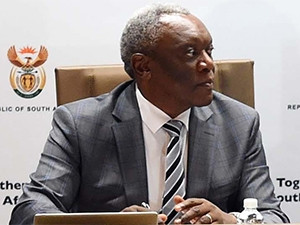
The proposal for the rationalisation of entities reporting to the Department of Telecommunications and Postal Services (DTPS) will potentially result in the establishment of two new state companies. However, the exact function of these new organisations remains a mystery.
Responding to the call of the Presidential Review Committee on state-owned companies (SOCs), the DTPS has set out to address duplications within its entities that led to inefficiencies and wastage of financial resources, and a lack of clear understanding of their mandates.
This week, DTPS deputy minister Stella Ndabeni-Abrahams told Parliament the department has undertaken an assessment of its SOCs towards rationalisation of such entities.
To this end, the department has developed a consolidated SOC rationalisation report, she said.
"In the 2017/18 financial year, focus will be on undertaking the SOC rationalisation process with specific focus on the State ICT Infrastructure Company and the State IT Company, which will include the development and Cabinet approval of the mandates of the respective state companies."
Responding to ITWeb's questions, department spokesperson Siya Qoza says all the DTPS' infrastructure SOCs are part of the rationalisation process and it is a consultative process involving all entities.
Qoza reiterates the rationalisation exercise is aimed at eliminating duplication of infrastructure and mandates, and also ensuring government spreads infrastructure and services to all citizens in a cost-effective manner.
"The final form of how these entities will be restructured will be determined by the consultations and we are considering all models that can be followed to achieve the rationalisation."
Unified entities
Six SOCs report to the DTPS: Broadband Infraco, Sentech, State IT Agency (SITA), Universal Service and Access Agency of SA, National Electronic Media Institute of SA and the SA Post Office.
While Qoza is coy about how these entities will be restructured, Democratic Alliance (DA) MP and shadow minister of telecoms and postal services, Marian Shinn, says the department's SOC rationalisation report will lead to two new Acts to establish the State IT Company and the State ICT Infrastructure Company.

Shinn, who was present during the parliamentary presentation, explains: "We were not given much detail as this will be provided more fully at a later briefing when we will get a presentation on the mountain of new legislation on the [department's] plate for the next few years."
As Shinn points out, the DTPS director-general said the state IT company would expand SITA's current mandate to include its new role of driving e-government, as well as being the IT procurement arm of the state. "We have not seen the report and the supporting legislation is years away."
On the other hand, it appears a merger of Broadband Infraco and Sentech is also on the cards.
In the past, there was speculation that government was mulling a sale or merger of Broadband Infraco.
Shinn explains: "The ICT Infrastructure Company will comprise Broadband Infraco and Sentech which, it seems, will compete with the private sector in providing IT goods and services to government entities. Broadband Infraco's licence will be expanded to provide retail as well as wholesale services."
Reviving SA Connect
Broadband Infraco was one of the tender bidders to roll out the SA Connect project. The tender was cancelled after SITA said none of the bidders qualified to take on the mammoth task.
SA Connect is the national broadband policy adopted by Cabinet in 2013, and last December marked three years since the policy was published.

According to government, the project aims to meet the technology goals of the National Development Plan (NDP). As part of the NDP plan, government has undertaken to connect its offices across the country, starting in the rural areas, to ensure South Africans have access to the most modern communication tools and services.
However, implementing phase one of SA Connect has been dogged by issues such as lack of leadership, no lead agency, as well as sourcing alternative funds for the project.
According to Shinn, it seems the new ICT infrastructure company will be the lead agency for the "failed SA Connect rollout project".
"As the legislation to establish these companies is not on the immediate radar ? the priority Bills are coming from the National Integrated ICT Policy White Paper ? it is unlikely these companies will be formed within the next three years, which further aggravates the target of SA Connect to have 90% of SA's population connected to the Internet at average speed of 5Mbps by 2020. 50% of the population was supposed to be connected by the end of 2016."
Shinn explains: "I believe that ? in principle ? the State ICT Infrastructure Company is a bad idea.
"Government has a poor reputation in running companies. A government IT company will just add another layer of cost to rolling out government ICT infrastructure. While Sentech is now a well-run company and Broadband Infraco is showing innovation under pressure to survive, being shackled by a bureaucratic mandate will financially cripple the new company.
"It will take years to establish and become operational. It will become a burden on the taxpayer and the poorest citizens will continue to remain excluded from the educational, work and economic opportunities offered via the Internet," she concludes.
Share